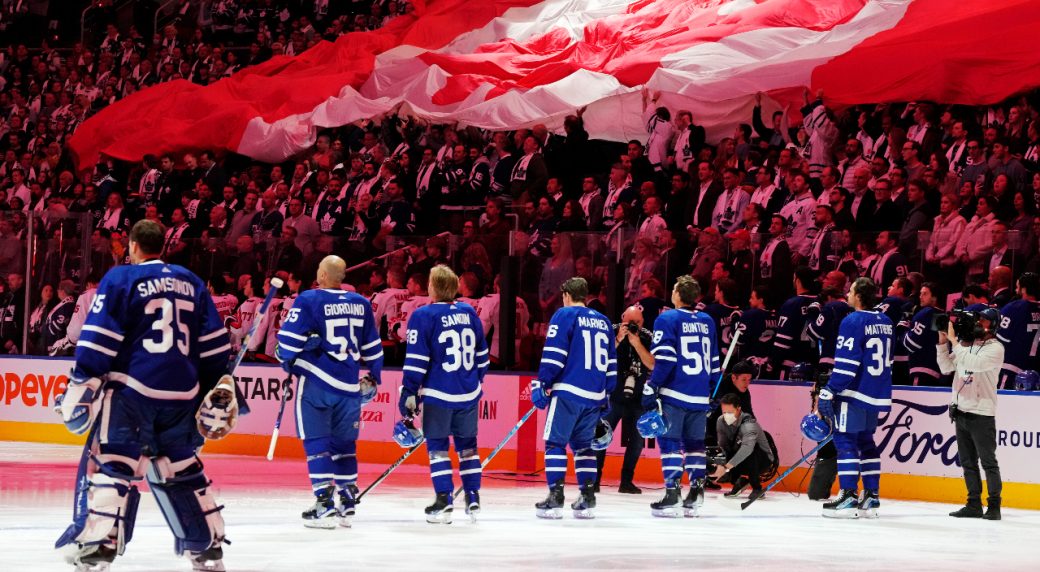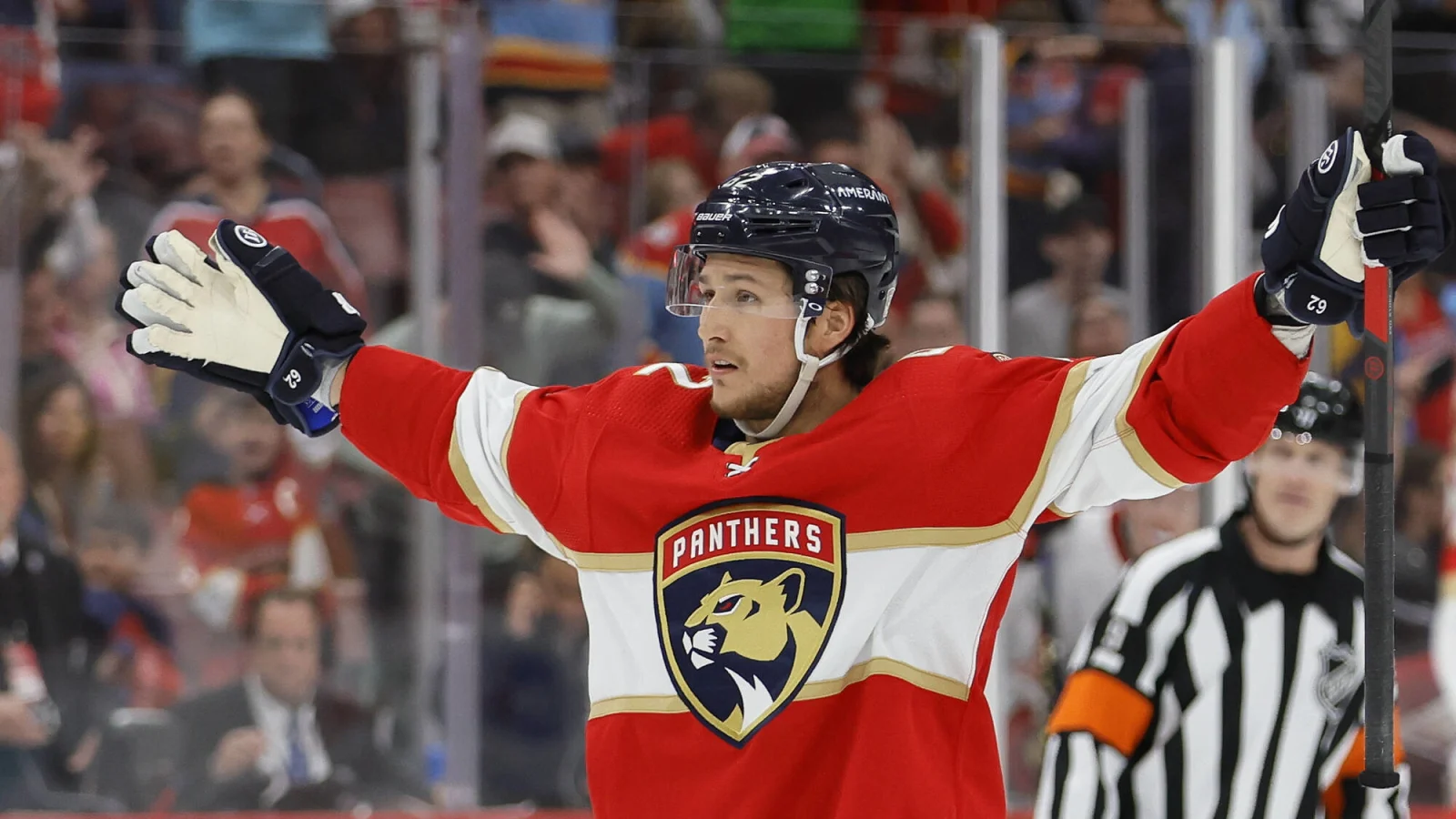Maple Leafs News & Rumors: Woll & Marner Waiving His No-Move Clause
Given that the Florida Panthers won the Stanley Cup last night, I’ll look at the Atlantic Division in this episode of Toronto Maple Leafs News & Rumors and argue that it is the hardest in the NHL.
I’ll then examine the reports that the Maple Leafs are getting ready to extend goalie Joseph Woll’s contract by three years. If true, it implies that the team won’t be looking to acquire a costly, experienced goalie, and it would provide supporters a glimpse into the organization’s plans for the crease going forward.
Third, during the past few weeks, Mitch Marner has been on my mind and in my writing. Readers are aware that I consider all of the writing on “landing places” to be clickbait. In my opinion, Marner will probably wear a Maple Leafs uniform in October as well. However, I don’t think it’s completely implausible that Marner wouldn’t agree to waive his no-move provision. He might have waived it for one reason, in my opinion.
Item 1: Maple Leafs Play in NHL’s Toughest Division
My frequent collaborator Stan Smith sent me an email this morning sharing his opinions on last night’s Game 7. He reminded me that an Atlantic Division team had advanced to the Stanley Cup Final in five of the last six NHL seasons. More astonishingly, in that time, they have won the Cup three times. The Montreal Canadiens and Tampa Bay Lightning, two clubs from the Atlantic Division, were the finals; the lone exception occurred in 2021 when COVID-19 caused a disruption in the divisional system.
These figures make it quite evident that the NHL’s Atlantic Division is among the hardest. It’s understandable that clubs like the Maple Leafs face tough competition year after year given their consistently strong results on the largest stage. He recommended a more thorough examination of what constitutes a difficult division and how it impacts teams’ postseason chances.He’s got a valid point.
Item 2: Maple Leafs Rumored to Be Working on a Joseph Woll Extension
The Maple Leafs are prepared to make a substantial investment in goalkeeper Joseph Woll, which is an unexpected development. Kevin Weekes reports that the team and Woll are getting close to signing a three-year deal extension that would pay Woll between $3.5 and $4 million AAV. Despite Woll’s short NHL experience—just 39 games at age 26—this trade has been made.
With a $766,000 cap cost, Woll signs a cheap contract that will keep him in the league for one more season before becoming a restricted free agent (RFA). He would be signed for three more years, buying out two possible unrestricted free agent (UFA) seasons, according to the rumored agreement. This strategy is similar to that used with Dallas Stars player Jake Oettinger, who in 2022 inked a $4 million, three-year contract.
In contrast, Oettinger had a stronger resume in the NHL after signing his contract, having played in 48 regular-season games and winning a lot of games in the postseason. Even though he is less experienced, Woll, if he contracts at the middle of the reported terms ($3.75 million AAV), will receive around 4.07% of the anticipated $92 million cap for 2025–2026. This is less than the 4.85% of the cap that Oettinger had when he signed.
Though at first it was thought the Maple Leafs would evaluate Woll more thoroughly before agreeing to a new contract, they now appear keen to lock him down for the long haul. This action shows they are confident in his abilities, even if they are thinking about bringing in a more seasoned goalie to help him. Toronto’s approach to guaranteeing goalie stability in a changing NHL environment is reflected in the choice to commit early.
Item 3: A Single Reason Marner Would Waive His No-Move Clause
It’s been evident from the beginning that Mitch Marner wants to be a leader on his team. His desire to be acknowledged as the team’s most valuable player is evident in his negotiating strategies, which include asking for a pay that is on par with that of his colleague Auston Matthews. With Matthews in the lineup, Marner will never get the chance to be the uncontested star of a Maple Leafs team. If he could join a team where he would be the King Pin, I think he would waive his no-move clause.
Marner was looking for a position where he could make a big impact on his legacy and personal brand for psychological reasons. He wants approval and acknowledgment. He would be more inclined to waive his no-trade clause if the move allowed him to leave Matthews’ shadow and take center stage on a different team.
Naturally, it is advantageous that financial support would follow and be appropriate given this notoriety and position as the foundation of a franchise. Having watched him for over six seasons, I would venture to assume that the desire to become the big dog would be the driving force behind any Marner’s relocation decision. In my opinion, he would also be traded if the Maple Leafs were approached by another team with an offer to make a blockbuster trade that would provide Toronto a ton of assets in exchange for him being the main return to the other team.
It would provide him the recognition and standing he has yearned for throughout his professional life. If he relocated, he would gain access to leadership and power right away, as well as the chance to alter a franchise’s culture and course. It would be immensely satisfying to have this kind of power and accountability, enabling Marner to make a lasting impression.
For Marner, it’s all about the psychological benefits of being the main character in the franchise, in my opinion. It would be alluring to him and the only reason he would choose to forego his no-move agreement.
What’s Next for the Maple Leafs?
With the Stanley Cup over, the real work for most teams gets underway. How will the Maple Leafs engage their team defence and their goalie situations? Those are the team’s most significant areas of need. It will be interesting to see what happens in a week. July 1 should be an active day for the organization and an exciting day for their fans.




